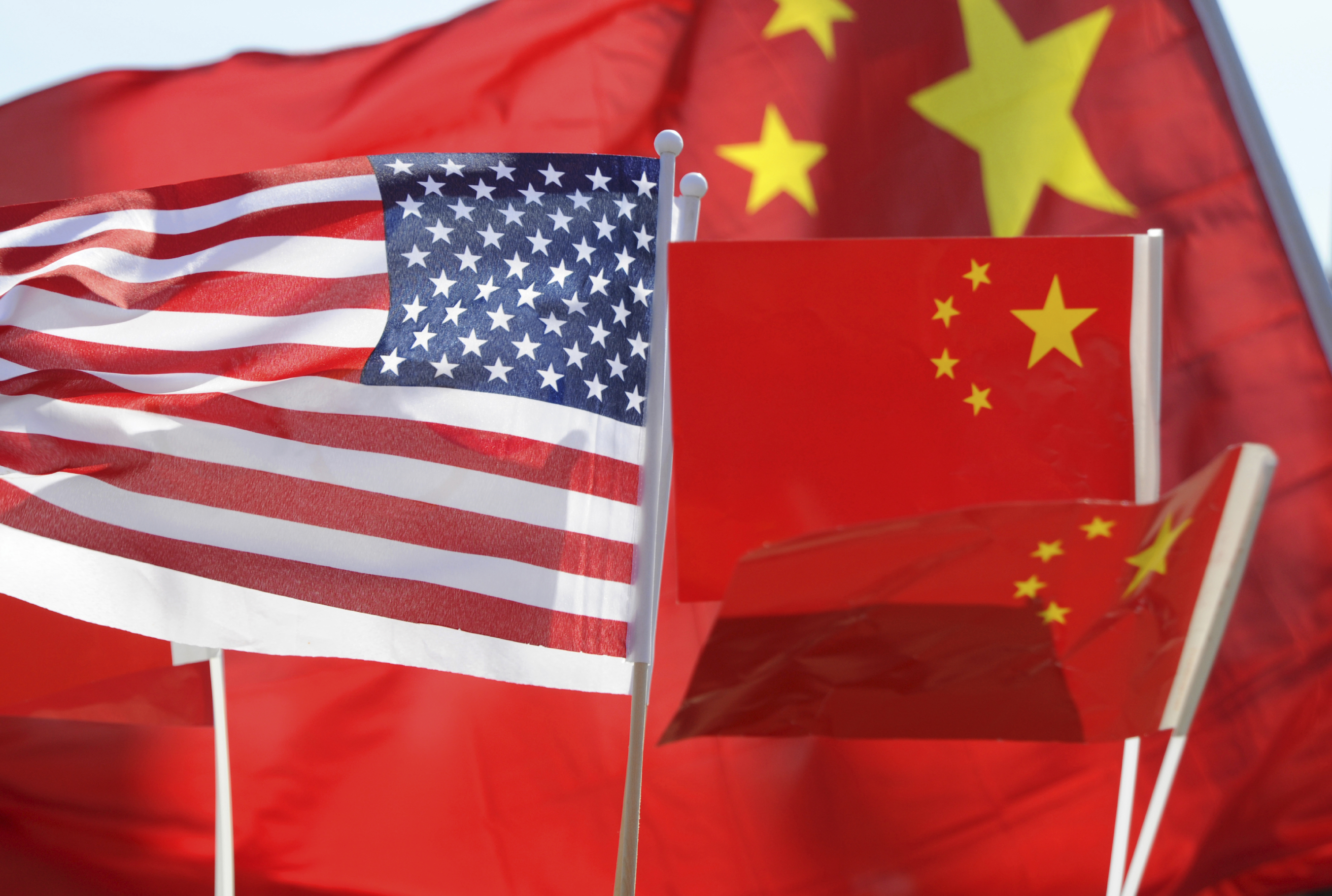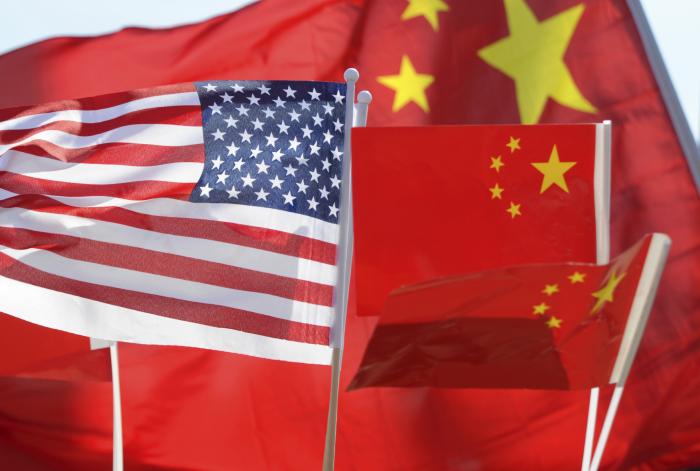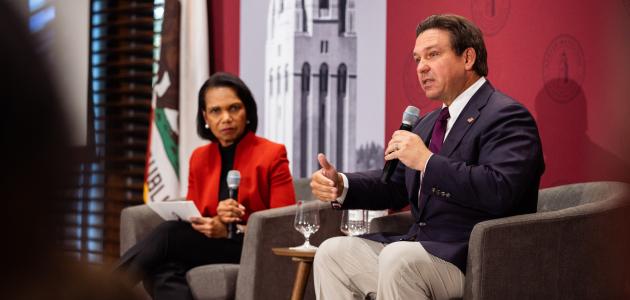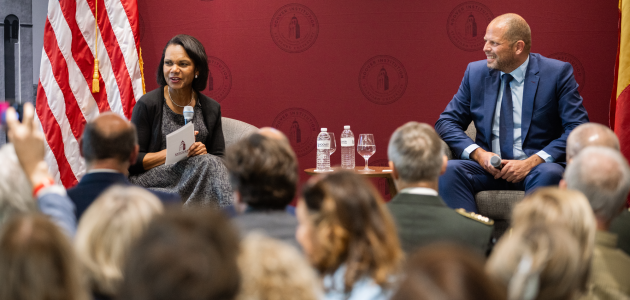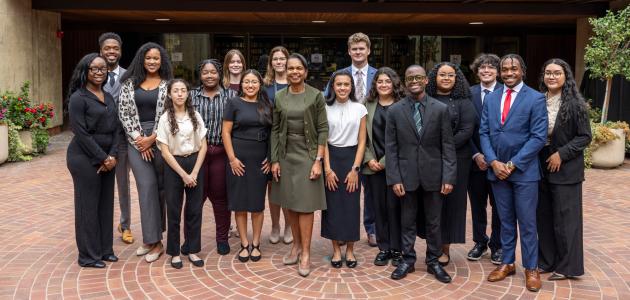Lieutenant Commander Leonard Leos, representing the US Navy in the 2016–17 class of national security affairs fellows, recently completed a survey on US-China policy in an important group whose opinions have been largely unexplored: Foreign Service and naval officers with experience in East Asia or the Indo-Pacific region. Drawing directly from those responsible for developing and implementing US strategy in the Pacific, the study adds a layer of robustness to the conversation about US-China policy under the new administration. It also demonstrates how the National Security Affairs Fellowship Program empowers rising leaders in the armed forces to study long-term strategic questions that they have identified during their service.
Leos and his coauthor, David R. Greenberg, a diplomat in residence at the East-West Center in Honolulu, first became interested in the topic through their work and travel with the US Pacific Fleet under Admiral Scott Swift. The authors noticed that diplomats and military leaders from our East Asian allies, as well as US military personnel serving in the region, seemed much more focused on China as a threat than their civilian counterparts working on policy from domestic posts.
“We had other issues arising,” Leos explained recently during an interview with the Hoover Institution, citing Russia, ISIL, and Iran as challenges that concerned his contacts in Washington more than a regionally assertive China. With President Obama’s pivot to Asia policy clearly expressing the administration’s priorities, the apparent disconnect between navy personnel and their diplomatic counterparts seemed especially relevant.
“We wanted to look at this problem and interview State Department personnel, who are largely the keepers of policy for our deployed,” said Leos, “and the navy because the Pacific is a maritime theater.” Leos and Greenberg developed a survey on US-China relations and sent it to hundreds of officials in the State Department and navy with experience in the Asia-Pacific region. Interestingly, responses to the survey weren’t as divided as Leos had expected based on his personal observations.
A strong plurality of respondents from both the navy and Foreign Service, for example, cited China as the highest priority relationship for the United States. A strong majority from both samples also agreed that China will be a regional hegemon within twenty years and viewed China as untrustworthy.
Significant majorities from both samples also agreed, however, that “friendly, cooperative” US relations with a Communist Chinese Party–led China are possible—though only one respondent indicated strong agreement with that statement. Although a majority of respondents from both groups disagreed with the premise that a military clash with China is likely, many respondents from both groups favored a more confrontational policy toward China. Many others responded that the US approach to China should be different, though they weren’t sure how; a more cooperative approach also polled strongly among navy respondents. Indicating a degree of disparity within the two groups, a quarter of the Foreign Service respondents indicated that US policy toward China should continue as is; only one navy respondent gave the same answer.
“If you look at the questions we asked, a lot of the answers were trending the same,” said Leos, summarizing the results of the survey. “I think the tagline would be that diplomats and warriors are on the same page when it comes to China.”
US-China policy involves wide range of constituencies within the US military and government and our allies in the region, but the authors feel safe pointing to some policy recommendations based on their sample of naval and State Department officials. The US should not, according to Leos and Greenberg, ignore expert forecasts of a strong China exerting greater power in Asia and the Pacific. Instead we should continue developing an effective strategy in the region and deepen engagement with Asian partner nations. Naval leaders and their diplomatic counterparts should also, according to the authors, recognize their shared perspectives and cooperate more closely in developing and implementing US policy toward China.
“The United States has withdrawn from the Trans-Pacific Partnership, and we no longer characterize our presence in Asia as part of a ‘rebalance,’” explained Leos, “but we can have another bipartisan, overarching, holistic governmental approach to our relationship with China that reassures our allies and friends in the region and furthers the interests of the United States.”
Leos and Greenberg are currently sharing the results of the survey with respondents, as well as with navy leadership in the Pacific to solicit input for further research. Readers at Hoover.org can also see the full results of the survey, along with a summary of findings and detailed policy recommendations, by reading the full paper, Senior United States Foreign Service and Naval Officer Attitudes toward China.







